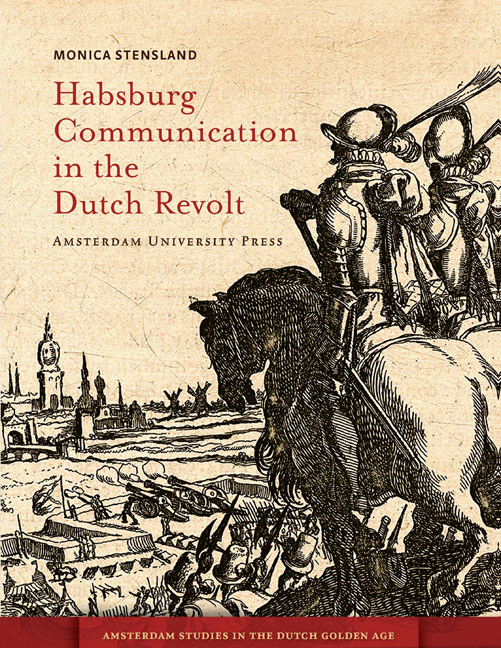Book contents
- Frontmatter
- Dedication
- Contents
- Acknowledgements
- List of Abbreviations
- Notes on References and Translations
- Introduction
- Rooting out Heresy and Rebellion, 1567-1572
- From Rebellion to War, 1572-1576
- The Breakdown of Royal Authority, 1576-1578
- Communicating Reconciliation, 1578-1585
- Losing the Peace, 1585-1595
- A New Beginning, 1596-1609
- Conclusion
- Notes
- Bibliography
- Illustration Credits
- Index
- Frontmatter
- Dedication
- Contents
- Acknowledgements
- List of Abbreviations
- Notes on References and Translations
- Introduction
- Rooting out Heresy and Rebellion, 1567-1572
- From Rebellion to War, 1572-1576
- The Breakdown of Royal Authority, 1576-1578
- Communicating Reconciliation, 1578-1585
- Losing the Peace, 1585-1595
- A New Beginning, 1596-1609
- Conclusion
- Notes
- Bibliography
- Illustration Credits
- Index
Summary
‘The Rise of the Dutch Republic must ever be regarded as one of the leading events of modern times.’ With these words, J. L. Motley began his book The Rise of the Dutch Republic, before going on to insist that the birth of the independent United Provinces, a direct result of the Dutch Revolt, was of such significance that, had it not happened, ‘the various historical phenomena of the sixteenth and following centuries must have either not existed, or have presented themselves under essential modifications’. Why was it so important?
To Motley, the Revolt had established new and lasting political principles of a nation's right to self-determination and freedom from foreign rule. In addition, the Republic safeguarded people's freedom through strict controls on executive power. To Motley, therefore, the Revolt was a precursor to the later modern revolutions, a view that has been shared by others both before and since. Decades prior to the French Revolution of his own day, Friedrich Schiller had seen the same struggle for freedom in the Dutch Revolt, whereas Heinrich Leo, a German contemporary of Motley who did not share Schiller's positive perspective, regarded the Revolt as the beginning of a lamentable penchant for revolutions in human history.
More recently, research on the influence of the Dutch Revolt on later developments in both Europe and North America has to some extent substantiated these earlier claims. G. C. Gibbs has detailed how, in addition to providing ideological inspiration for the American Revolution, the Revolt framed Americans’ experience of their own rebellion while also providing warnings of what not to do. In the English case, Hugh Dunthorne has shown how the Dutch Revolt was a source of inspiration in both the Civil War and the Glorious Revolution, and he has provided evidence for the extensive personal and print connections that made such inspiration effective. Quentin Skinner has included the resistance theories developed during the Dutch Revolt, along with numerous other thought traditions, in the foundations of modern political thinking as it emerged in the seventeenth century. There have also been attempts to ‘upgrade’ the Dutch Revolt itself to the status of a modern revolution by comparing its development to the phases recognised in the American, French and Russian revolutions.
- Type
- Chapter
- Information
- Habsburg Communication in the Dutch Revolt , pp. 15 - 26Publisher: Amsterdam University PressPrint publication year: 2012



